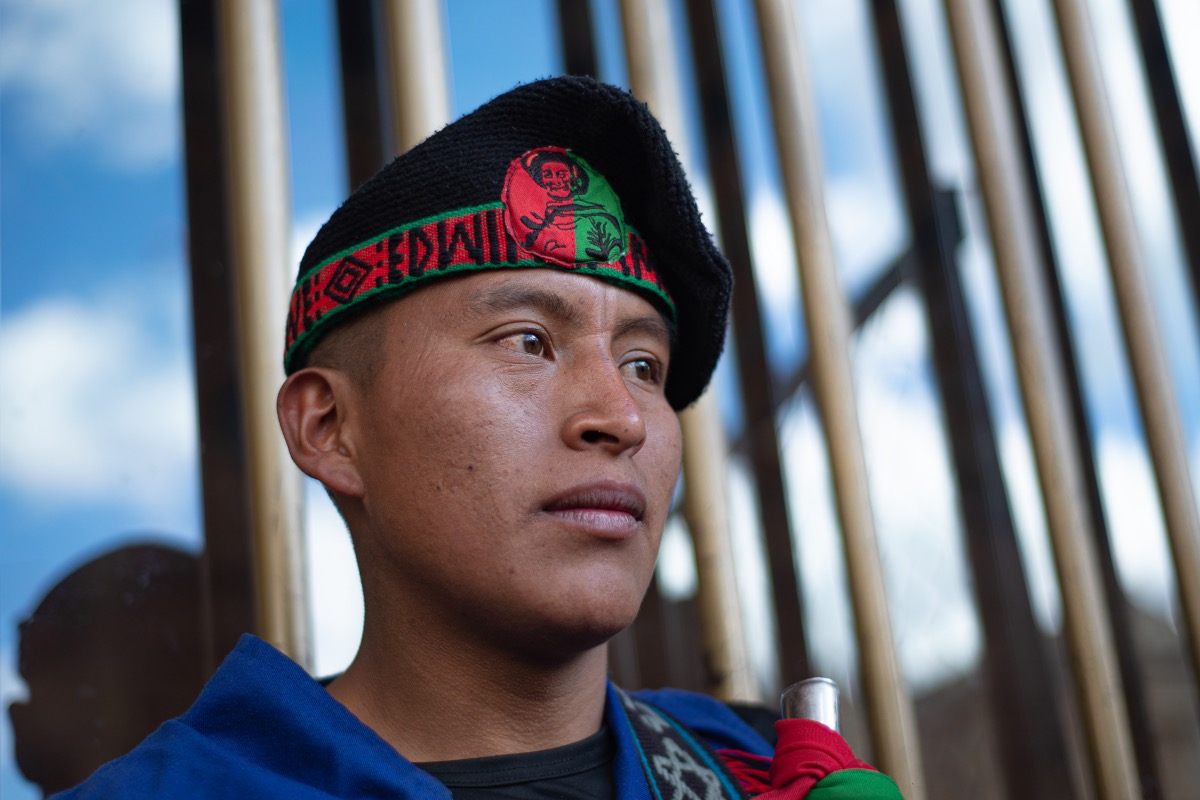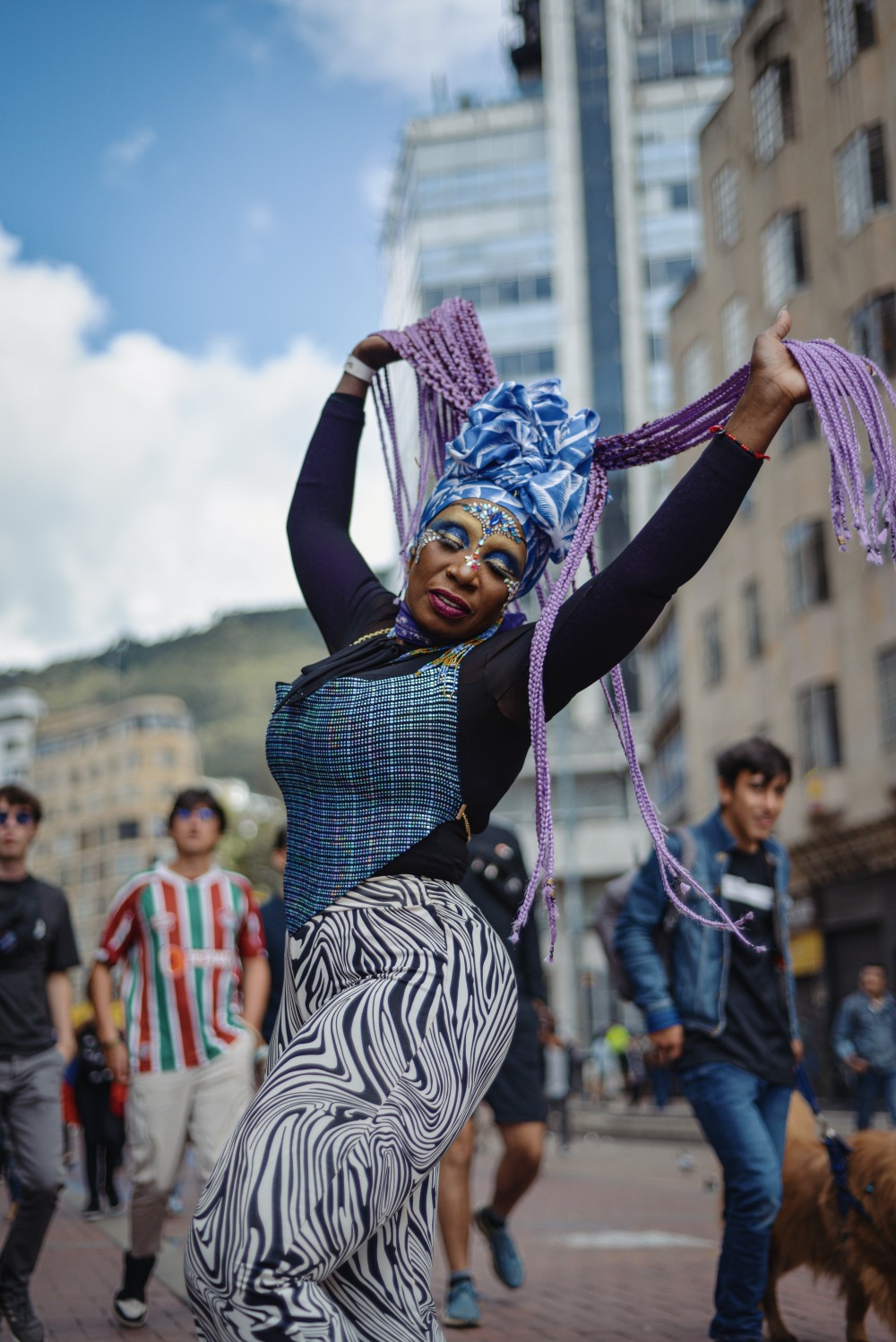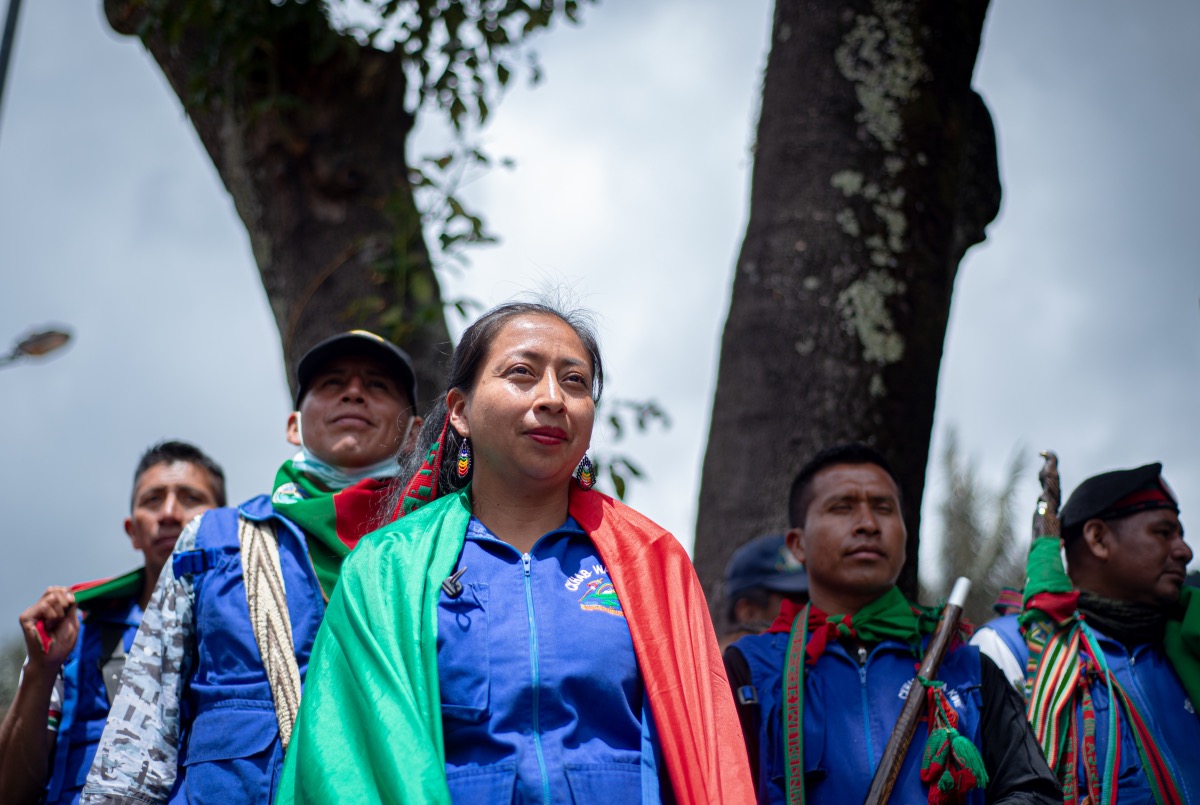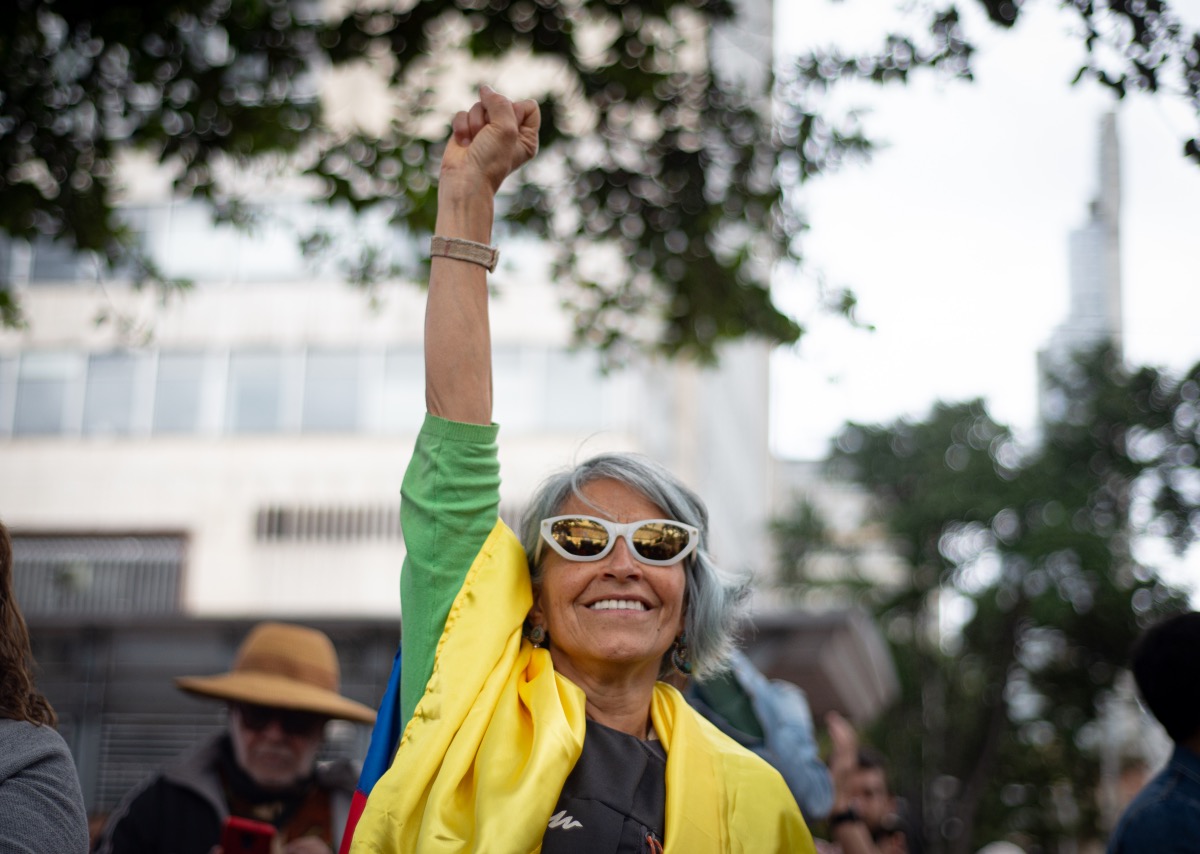

Daniela Díaz Rangel/Latino Rebels
BOGOTÁ, Colombia — Two Sundays ago, the streets of Bogotá were filled with revelers—highly unusual for a presidential inauguration, which is usually a formal affair that concerns heads of state more than the public.
Newly-elected president Gustavo Petro and his running mate, Francia Márquez, set up giant screens throughout downtown Bogotá so those in the streets could view the ceremony. The historic moment was also reflected in the demographic makeup of those in the streets —the “nobodies,” as Márquez often referred to them on the campaign trail, using the term coined by the late Uruguayan journalist and writer Eduardo Galeano to describe the forgotten populations who hope the historic moment brings them greater representation in government.
Colombia has been governed for decades by white men from the upper classes and with a mainly right-wing ideology. Petro and Márquez won the election promising to represent populations that have historically been ignored by previous administrations.
Petro has said his priorities as president will be respect for human rights, environmental justice, and full implementation of peace—an important political agenda at this time in Colombia, as the two leaders are taking control of a country with extremely high rates of violence, particularly after the non-implementation of the Peace Agreement signed with the former FARC guerrillas in 2016, which led to the creation of “dissident” splinter groups and growing power of dozens of other criminal armed groups.
So far, in 2022, there have been 49 massacres, which the state defines as the murder of three or more people in one incident. Since the peace deal was signed, more than 600 environmental and social leaders have been assassinated.
Latino Rebels attended the inauguration and spoke with the people about their hopes for the new administration.


Daniela Díaz Rangel/Latino Rebels
“I am convinced that a change has arrived,” said an Afrodescendant woman by the name of “African Queen,” who runs a non-governmental organization and had never attended a presidential inauguration. “They’re going to have to make many changes, but hand in hand with the people.
“Francia though is from the people,” she added. “She is from the land. They understand what those of us who have gone without food or homes feel like.”


Daniela Díaz Rangel/Latino Rebels
In the different squares with giant screens, which the president-elect had installed, there were also young people from “the Front Line,” a resistance group created in the midsts of the national strike last year.
“We are here demanding freedom for our political prisoners,” said one member. “We continue to fight, and with Petro we believe that the change we have been asking for will come. We want the blood spilled by our brothers and sisters to have not been in vain”—referring to the at least 15 young people murdered during protests last year.


Daniela Díaz Rangel/Latino Rebels
“I am celebrating the hope of a country where we are allowed to live and dream,” Ana, an artist and teacher, told Latino Rebels through tears. “This is a historic occasion where we can truly hope for peace.”
With elections over, however, and the ceremonies complete, Petro and Márquez now begin the difficult task of governing. The outgoing administration of Iván Duque has left behind critical economic and security concerns, but for those who supported the Petro-Márquez campaign, representation of communities long ignored by the capital is enough to hope these challenges can be met successfully.
***
Daniela Díaz Rangel is a photojournalist based in Colombia whose work focuses on focus on gender, peace, and social issues. Twitter: @Eu_femismo


